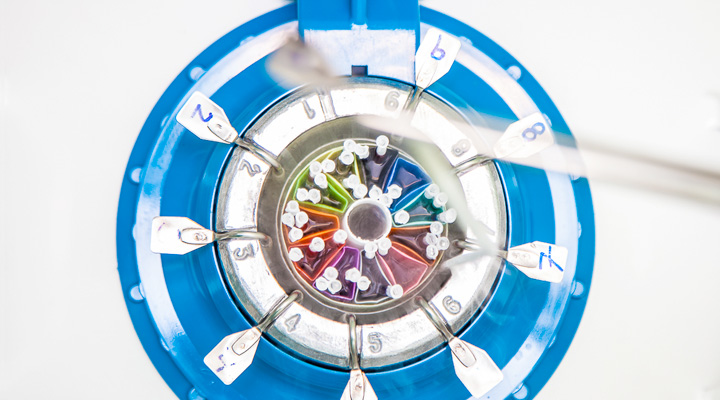The origin and selection of sperm donors is one of the most carefully controlled aspects of the Sperm Bank.
GIROFIV has established a collaboration agreement with several sperm banks outside the Girona region. These centers are responsible for donor selection, sperm freezing, quality control, and specialized transport. Throughout the entire process, the preservation of anonymity is a very important aspect.
Donor selection follows a very thorough process that includes:

The GIROFIV Sperm Bank offers solutions for a wide variety of situations:
Donor sperm samples:
Sperm sample freezing:
Freezing of samples from Testicular Biopsy
Sperm samples not from anonymous donors can be stored at the Sperm Bank for the entire lifetime of the patient.
Sperm donation is voluntary, anonymous, and altruistic.